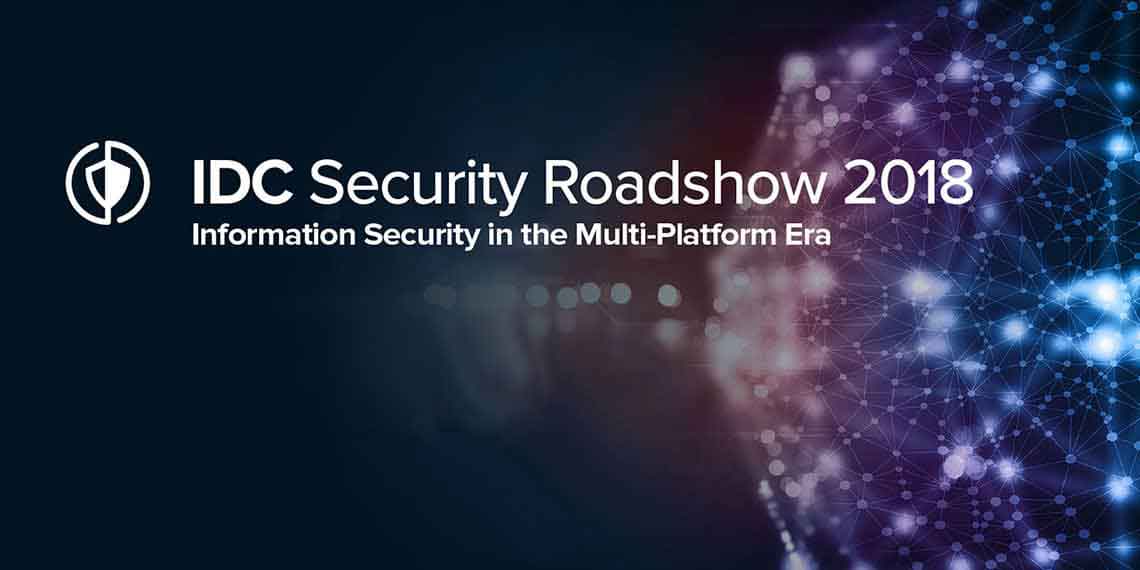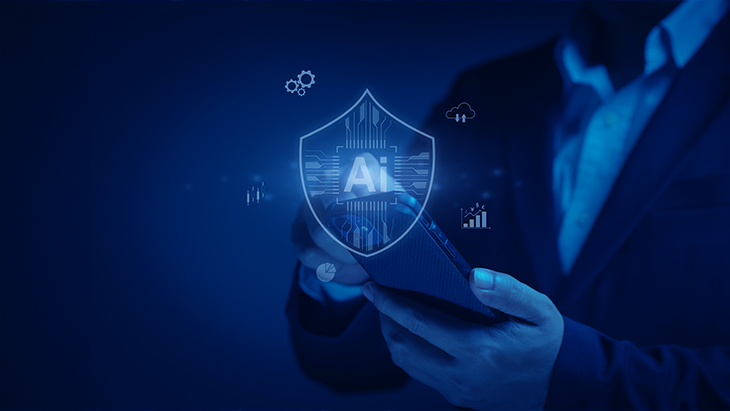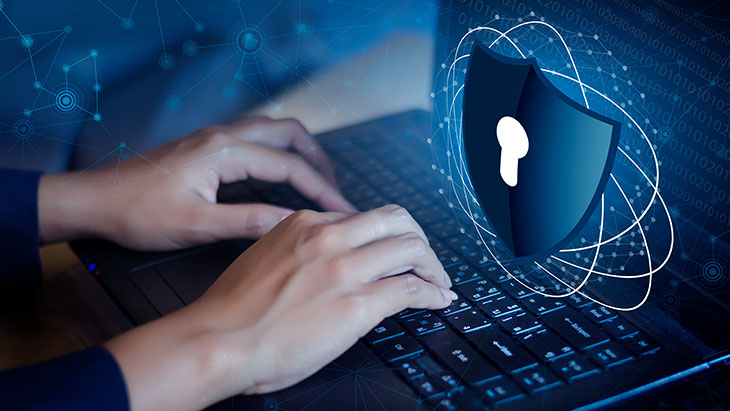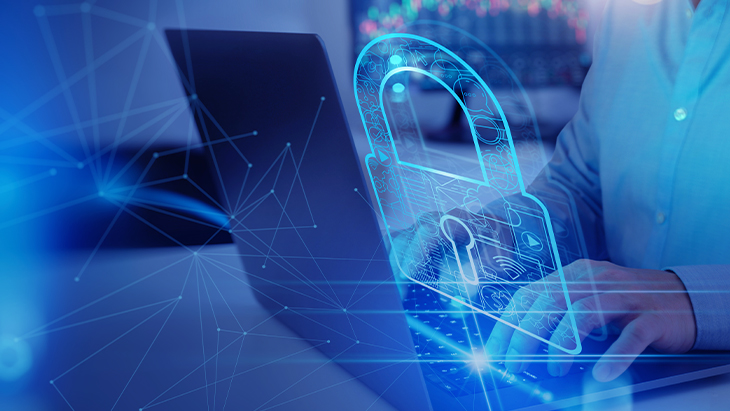
Cyber Security from A to Z for Enterprises
The acceleration of digitalization, the fact that digital transformation is more important than ever for organizations, and that remote working has become a norm with increasing digital data sharing. On the other hand, the exponential increase of crimes committed in the internet environment makes it inevitable for enterprises to be aware of cyber security and take precautions. In light of all these developments, cyber security is more important than ever. So, what should businesses pay attention to regarding cyber security, what kind of roadmap should they follow to protect against cyberattacks?
What is Cyber Security?
Cyber security can be defined as techniques to protect computers, networks, programs, and data from unauthorized access or exploitative attacks. The larger a business is, the more likely it is to be subject to a cyberattack. However, this does not mean that small and medium businesses are not at risk. Any business with an online presence can be vulnerable to cyberattacks, and the financial, physical, and legal consequences of an attack on the business can be absolutely devastating. Cyberattacks also put businesses in a very difficult position in terms of customer trust and brand reputation.
So, how do you protect your business from cyberattacks in a world full of threats? In order to become competent in cyber security, every business owner must first understand the importance of cyber security, be informed about threats, and then implement measures and practices that can be taken against these threats.
Why Is Cyber Security Important for Business?
One of Europe's leading airlines came up in 2020 with a massive data breach scandal. The cyber attackers were able to access the contact information as well as the financial data and travel histories of the passengers. Although the company did not reveal how the data breach occurred, the incident had great repercussions as disclosure of personal data posed great security risks to individuals. At the end of this incident, the company faced an 18 billion pounds class-action lawsuit on behalf of passengers affected by the cyberattack. If a data protection and security vulnerability is found as a result of the lawsuit, the company will face heavy fines.
This and similar cyberattack news reveal the importance of cyber security. In a period when the internet is actively used and personal data is shared so intensely, it is very unlikely that there is no possibility of an attack, especially considering that your business has an online presence. Therefore, businesses should make cyber security planning or get support in this regard. If this is not the case, data breaches may occur as a result of an attack, and this may lead to legal problems and also damage the trust bond between you and your customers.
What is Cyber Security Threat?
Cyber security threat refers to possible malicious attacks aimed at illegally accessing data, interrupting digital transactions, or damaging information. Cyber threats can be caused by a variety of actors such as corporate spies, hackers, terrorist groups, hostile nation-states, criminal organizations, hackers, and disgruntled employees. With such a wide range of attack factors and risks, businesses have to keep up with this ecosystem.
What are the Types of Cyber Security for Businesses?
As an enterprise, if you do not have any cyber security plans, cyber attackers can access your system and capture and misuse your company information, your customer's information, or much more. cyber security types developed to protect against attackers and the tools they use can be listed as follows:
1- Application Security
Application security is the discipline of processes, tools, and applications that aim to protect all applications from threats. Cybercriminals are organized, specialized, and motivated to find and exploit vulnerabilities that incorporate applications to steal data, intellectual property, and sensitive information. Application security can help organizations protect any application (such as old, desktop, web, mobile, microservices) used by internal and external stakeholders, including customers, business partners, and employees.
2- Data Security
Data security aims to protect digital information against unauthorized access, corruption, or theft. It is a concept that covers all aspects of information security, from the physical security of hardware and storage devices to management and access controls and the logical security of software applications. Data security includes technical measures as well as corporate policies and procedures.
3- Network Security
The increase in internet usage, due to the fact that even our daily activities go towards digitalization, has made cyber attackers even more active. Network security basically fulfills two tasks. It protects information from unauthorized access and ensures the security of not only the network but also the data stored on personal computers.
4- Operational Security
Operational security (OPSEC) is a process that involves identifying and protecting critical information or processes that, when combined, can be used to obtain real information. Although the information sought under OPSEC is not classified, it can give an advantage to a competitor. OPSEC focuses on identifying and protecting clues or information that can add value to the disadvantage of enemies.
5- Cloud Security
Cloud security is a cyber security discipline dedicated to ensuring the security of cloud computing systems. It enables keeping data private and secure in online-based
infrastructure, applications, and platforms. Securing these systems is in the hands of cloud providers and individual, small and medium-sized businesses using them. Cloud providers host services on their servers through always-on internet connections. Cloud security methods are used by businesses to keep customer data private and securely stored. However, cloud security is also partially in the customer's hands. Considering all needs is essential for a healthy cloud security solution.
6- Endpoint Security
Cyber criminals are constantly developing new ways to infiltrate networks and steal private information. Benefiting from employees is one of them. Although small businesses may think they are too small to target, the opposite is actually the case. Cyber criminals specifically target smaller businesses in the hope that small businesses do not implement adequate endpoint security. Endpoint security is strategies and technologies developed to protect devices and systems such as PCs, servers, IoT, smartphones called endpoints from malware, hackers, and insider abuse.
7- Identity and Access Management (IAM)
IAM is a set of policies, processes, and technologies that allow organizations to manage digital identities and control user access to critical corporate information. It assigns users specific roles and ensures they have the right level of access to corporate resources and networks. IAM improves security and user experience, increases the applicability of mobile and remote working and the cloud system.
8- Privileged Access Management (PAM)
Privileged Access Management (PAM) refers to a class of solutions that help secure, control, manage, and monitor privileged access to critical assets. To achieve these goals, PAM solutions usually take the credentials of privileged accounts, i.e. administrator accounts, and place them in a secure repository (vault) that isolates the use of privileged accounts to reduce the risk of credentials being stolen. Once in the repository, system administrators need to go through the PAM system to access their credentials. At this point, authentication, password protection, and data masking can be done with various methods and their access is logged.
Providing the ability to centrally manage privileged credentials, PAM solutions can provide a high level of security. Businesses that use Privileged Access Management solutions can control who has had access (or will have access) to data, keep track of all access, and monitor any suspicious activity.
How To Protect Your Business From Cyberattacks?
In a remote working era where cyberattacks are so intense and shocking, it has become necessary to take cyber security measures for businesses of all sizes. In order to protect your business from cyberattacks, it is important to ensure that all components of your organization are aware of these attacks. It is extremely important to take hardware and software-oriented measures against any scenario that may cause data breaches and put digital assets at risk.
You can secure your business against cyberattacks by checking your existing IT ecosystem, detecting security gaps, and getting professional support for all possible risks. In order to protect critical data that is of great importance to your business, you can get help from the
Privileged Access Management solution that allows authorized accounts to access your systems only within the defined framework.
With Kron's exclusive access management platform Single Connect you can protect your business from cyber security attacks by providing high-level security in accessing critical data.
Other Blogs

Reducing Cyber Insurance Costs with Kron PAM: A Smart Move for Businesses











